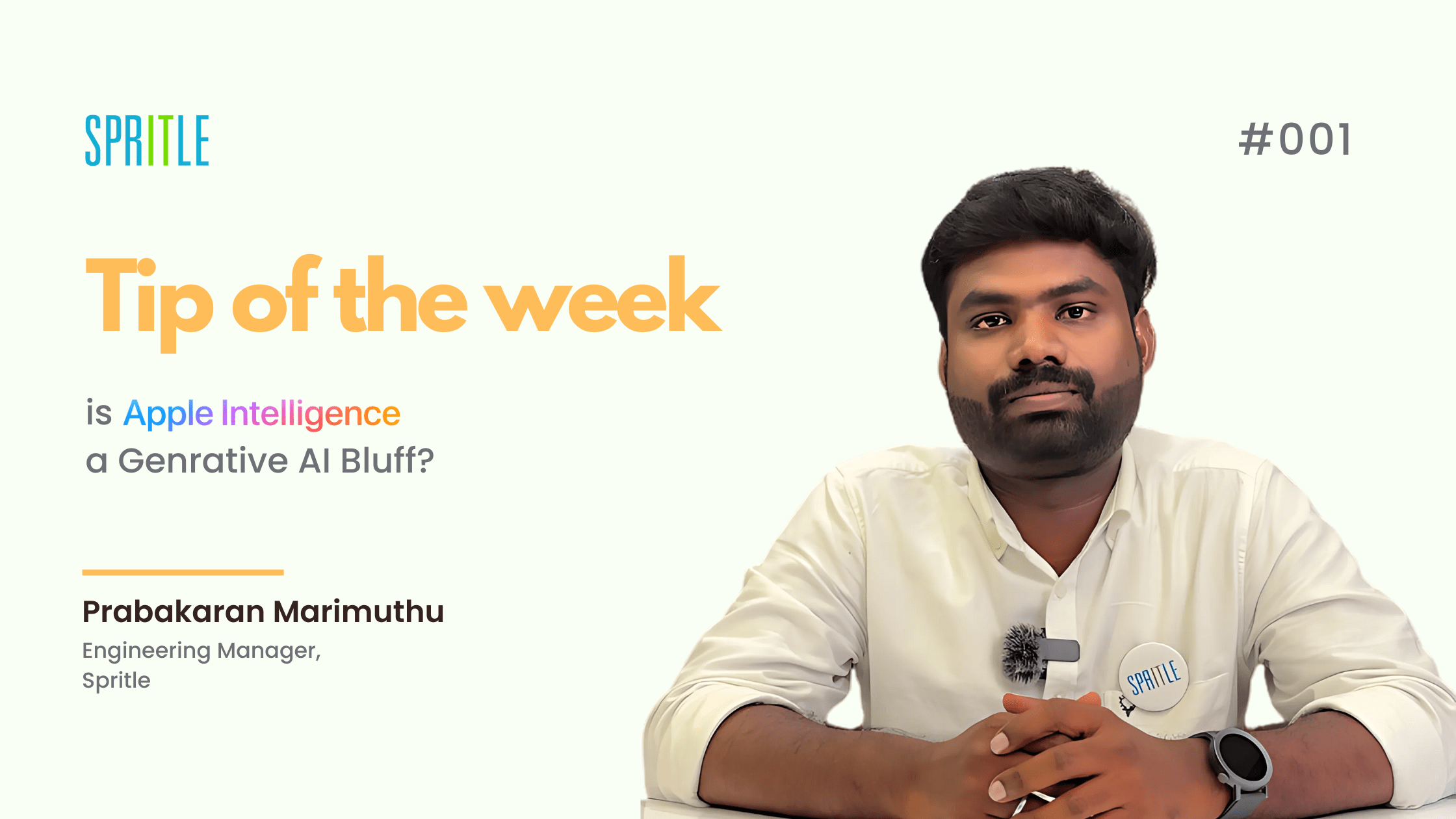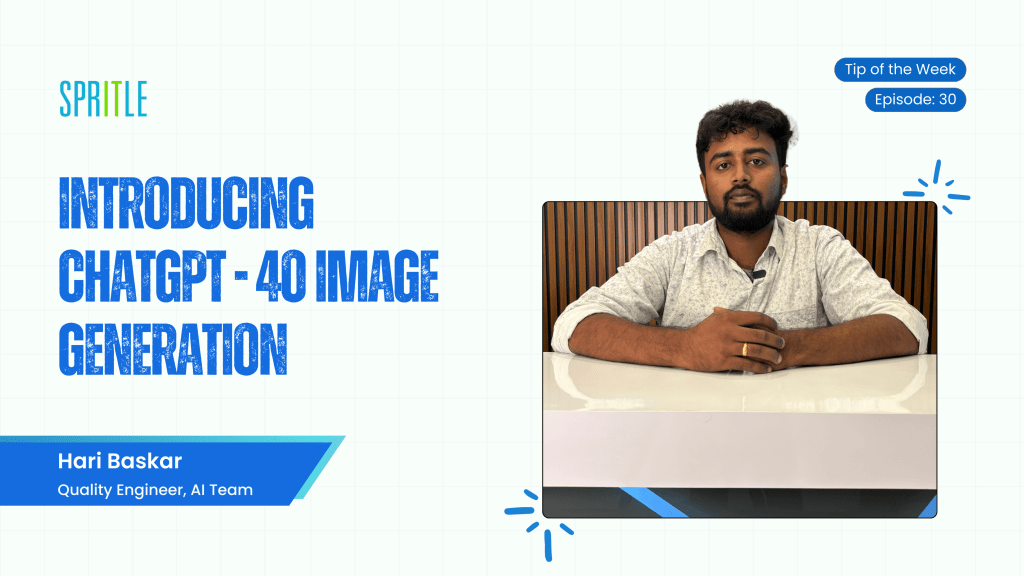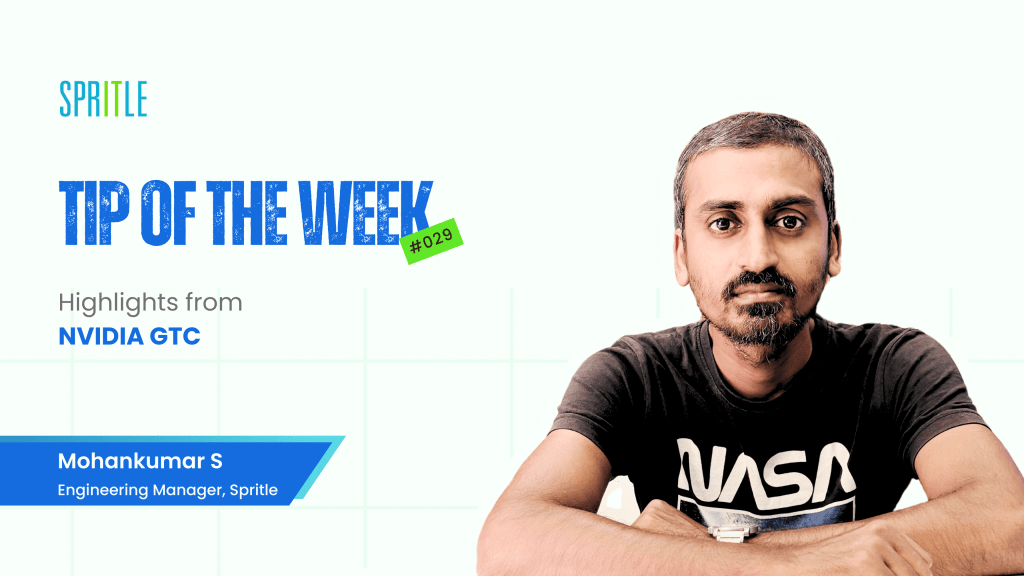Introducing “ Tip of the Week” Get ready for your weekly brain boost! 💡 Whether it’s clever hacks, new trends, or pro tips, we’re serving up bite-sized gems to keep you ahead of the curve. Quick, insightful, and always fresh — this is where knowledge meets simplicity. Stay tuned and level up your game, one tip at a time!
Tip of the Week – #001
Apple Just played a bluff with its new Apple Intelligence!!!
Edge AI: The Future is Here, and It’s NOT in the Cloud! Say goodbye to data privacy fears, internet dependence, and costly cloud computing. The next AI revolution is happening right in your pocket.
Are you ready for the shift, or are you still stuck in the clouds?
Is Apple Intelligence a Generative AI Bluff ?
Speaker : Prabakaran – Engineering Manager
This week, I want to highlight a growing trend in the AI world: on-device or Edge AI. As you know these Gen AI and LLMs stuffs are evolving currently, we’re seeing a spike in demand for AI capabilities that can run directly on our everyday devices.
Imagine your smartphone, security camera, or even your smart watches processing AI tasks locally, without sending data to the cloud. This is what Edge AI is all about.
A great example of this is Apple’s recent introduction of on-device intelligence called “Apple Intelligence”.
On-device AI offers several key advantages:
- Privacy: Data stays on the user’s device rather than being sent to cloud servers.
- Reduced latency: Processing happens locally, enabling faster responses.
- Offline functionality: AI features work without an internet connection.
- Lower costs: Less reliance on cloud computing resources can reduce operational expenses.
- Personalisation: Models can adapt to individual users more easily when running locally.
- Regulatory compliance: Helps meet data protection regulations by keeping sensitive information on-device.
- Reduced network load: Decreases the amount of data transmitted, benefiting areas with limited connectivity.
This shift towards Edge AI is reshaping how we interact with AI in our daily lives, making it faster, more private, and more accessible than ever before.






